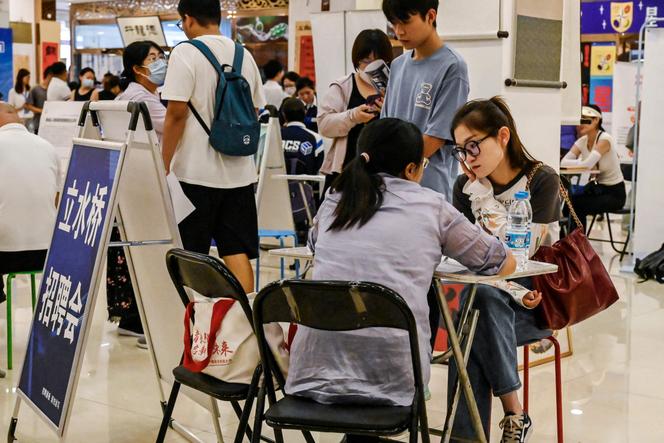


Can China avoid an economic crisis? Since the end of the zero-Covid policy in December 2022, Chinese economic players have been hoping for measures to boost activity. For the past eight months, they have been disappointed. Beijing is playing fiscal discipline, yet economic indicators are alarming: China entered deflationary territory in July, real estate continues to fall, with sales down 34% in August, and several major developers, such as Evergrande and Country Garden, are on the verge of bankruptcy, risking taking financial institutions down with them.
Exports also fell by 14.5% in July, while consumption stagnated. Youth unemployment is so high that the authorities stopped publishing figures in August, after a record 21.3% in June.
Faced with this avalanche of bad news, the strategy of China's decision-makers is taking shape. On Friday, September 1, after cutting interest rates two weeks earlier, China's central bank lowered the level of foreign currency reserve requirements for banks in order to support the yuan, which, in August, reached its lowest level against the dollar since 2007.
Local governments, overburdened with debt after three years of zero-Covid policy and deprived of revenues from land sales to property developers, were authorized in mid-August to issue 1 trillion yuan (€127 billion) of new debt. On Friday, the authorities also announced that banks would be able to lower interest rates on home loans, and that tax deductions would be available for expenses related to children's education.
These monetary and fiscal stimuli are far from the levels reached in 2008, or even 2015, the last real estate crisis, which prompted Beijing to authorize the issue of 12 trillion yuan of debt to rescue the finances of local governments.
While this approach helped to revive the real estate sector for a few years, it also contributed to the debt overhang of developers and local governments, whose total debt is estimated at 66 trillion yuan by the International Monetary Fund (IMF).
This explains the current budgetary discipline. "The simplest solution would be to offer developers a guarantee, but China's leaders don't want to do that. I think we'll see a distinction between the banks, which will be protected, and the property developers that have benefited enormously from rising prices in recent years, who will have to fend for themselves. For the time being, they seem to prefer to wait a few months to see if the current measures to support demand are working," said Michelle Lam, China specialist at Société Générale's investment bank.
You have 52.86% of this article left to read. The rest is for subscribers only.
